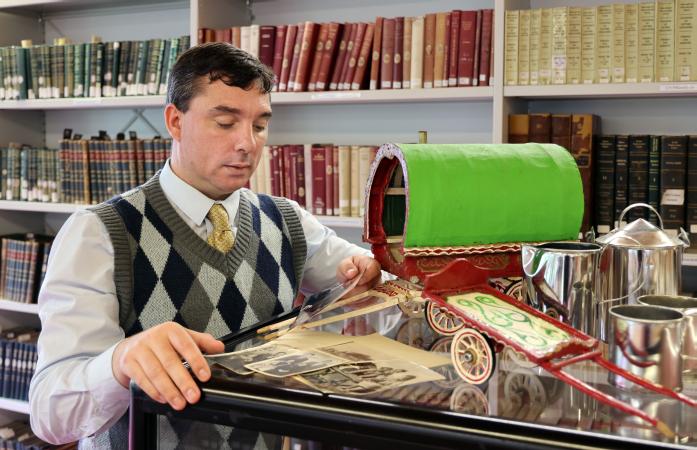-
-
Author: Bernie Ni Fhlatharta
~ 4 minutes read
A Galway project two years in the making has brought the rich history of Travellers together in an archive which provides a new insight into this forgotten part of the story of Ireland. BERNIE NÍ FHLATHARTA talks to the driving force behind the initiative.
There are 30,000 Travellers in Ireland, yet there’s little or nothing being taught in schools about the country’s own indigenous people.
But, more than likely, that will change thanks to initiatives involving archive material that will throw a light on a people who have experienced discrimination and hardship in their own country — an odd position in a country known for its generosity, hospitality and support for other challenged nations around the world.
The University of Galway was quick to support an idea from one of their own graduates, a Traveller himself, to document his tribe’s rich history.
A Galway city man, Owen Ward, was encouraged by his Alma Mater’s backing and two years later, the college has launched its newest archives, the Mincéirí Project, now available to the public in both physical and digitised form.
Ward, an honours BA graduate and Masters in Post Primary Education, couldn’t be happier or prouder. “As a history teacher myself, I realised that our (Traveller) history was missing in the teaching of Irish history.
“I had often thought about it but never thought it would happen. Of course, there’s no point to all the best ideas in the world, if there isn’t the backing and support.
“The first step of receiving content was very encouraging as it showed how rich Traveller history is. The next step is including it in the teaching of history,” says Ward, an Equality, Diversity and Inclusion Programme Manager for Race Equality on college campus. He is also a committee member of the college’s Governing Authority.
Along with Kieran Hoare, Archivist, Ward oversaw the material before it was physically and digitally archived. The collection contains items related to Traveller human rights, education, employment, housing, music, folklore and photographs of the community. It also includes material from current resources located within existing catalogues and collections including the Ritchie-Pickow and Joe Burke archives.
The Mincéirí project began in November 2021 as part of the celebrations which followed on from the 175th anniversary of the foundation of the University in 1845.
It was one of six projects sponsored by the Office of the University President through a special fund to record and share the country’s institutional history.
Mincéirí Archives is a growing collection of all types, complemented by historical documents and scholarly texts. This collection focuses on Irish Travellers from the 1960s when Ireland transformed socially, economically and culturally; its impacts on the nomadic indigenous community and the dawn of the Traveller Rights movement in Ireland and Europe.
In an office surrounded by boxes of documents and photographs on all kinds of subjects, not all of them related to the Mincéirí Project, Hoare explained that the first step was to put a call out, initially among the Traveller community, for material that would be a record of how they lived in Ireland since the 1960s.
“We were pleasantly surprised at the response and the abundance and richness of what came in to us. Owen always hoped that these archives would be a record, not just of how Travellers lived but show their heritage and culture. He had always hoped too that the archives would be an education tool in primary and secondary schools.”
One of the strongest contributions has come from a Cork native, Sr Collette O’Dwyer, who taught in England before returning to Ireland, where she became a Traveller Rights activist.
She campaigned for everything from literacy classes to the provision of accommodation. This was long before the establishment of Pavee Point, a Traveller led collective community which promotes human rights.
Documents in her papers includes correspondence between her and Government departments as well as her own field handwritten notebooks. One leaflet dating back to the late ’70s shows a photograph of Traveller children with the tagline, ‘A Third World on our Doorstep’.
Pictured: Owen Ward who started the project on Irish Travellers. Photos: Joe O’Shaughnessy.
For more, read this week’s Connacht Tribune:
Connacht Tribune Digital Edition App
Download the Connacht Tribune Digital Edition App to access to Galway’s best-selling newspaper. Click HERE to download it for iPhone and iPad from Apple’s App Store, or HERE to get the Android Version from Google Play.
Or purchase the Digital Edition for PC, Mac or Laptop from Pagesuite HERE.
Get the Connacht Tribune Live app
The Connacht Tribune Live app is the home of everything that is happening in Galway City and county. It’s completely FREE and features all the latest news, sport and information on what’s on in your area. Click HERE to download it for iPhone and iPad from Apple’s App Store, or HERE to get the Android Version from Google Play.
More like this:

Plans lodged for apartment block at Dublin Road in Renmore
This article first appeared on Galway Bay FMPlans have been lodged for an apartment block in Renm...
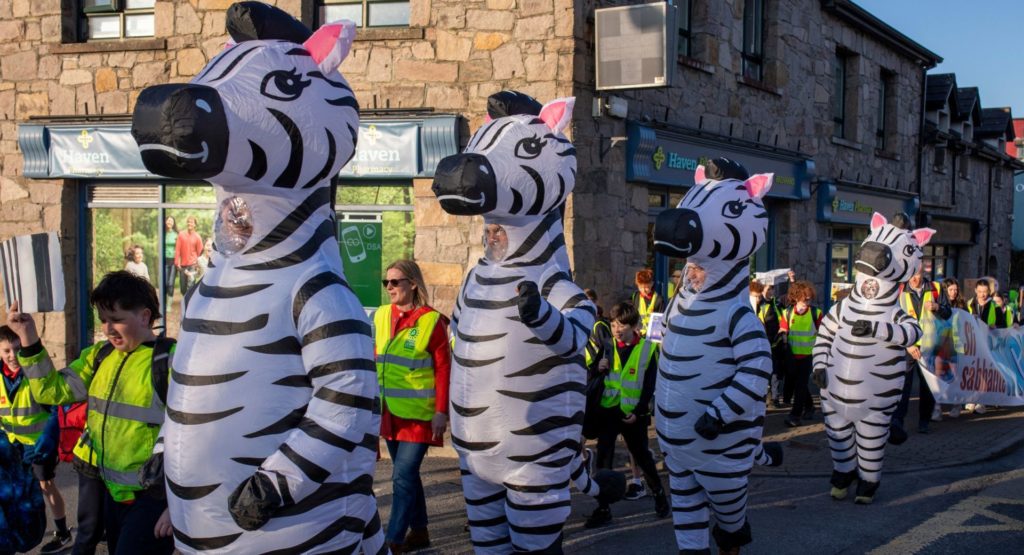
Extended feature – road safety protest in Connemara
This article first appeared on Galway Bay FM800 people have taken part in walking protests across...
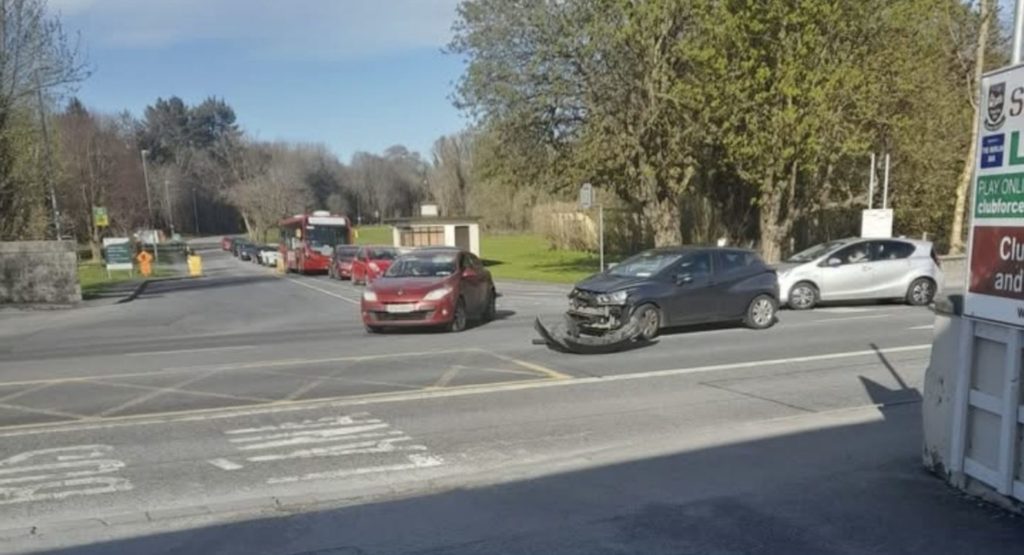
Latest collision at Merlin Park Hospital entrance prompts appeal to Transport Minister
This article first appeared on Galway Bay FMThe latest collision at the entrance to Merlin Park H...
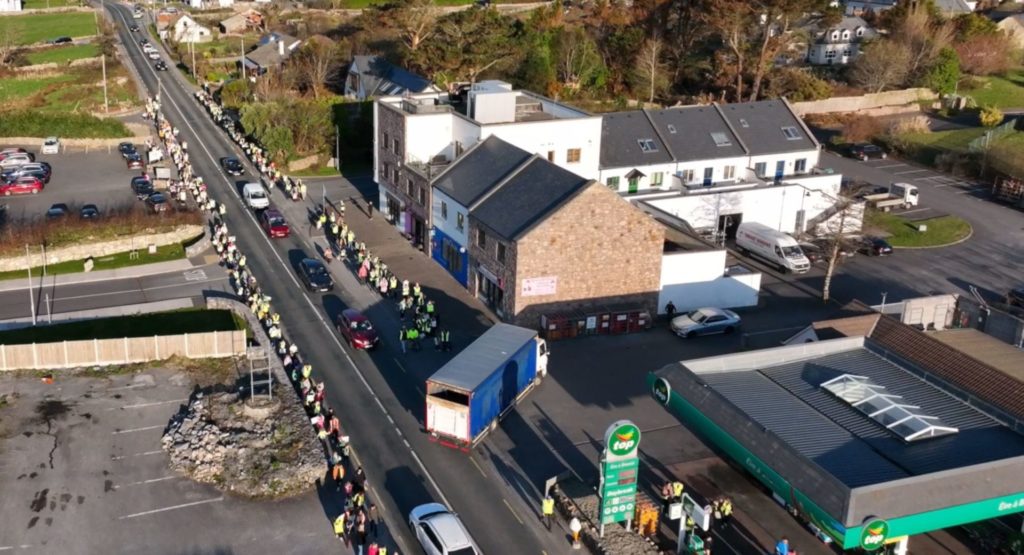
800 people take part in walking protests across Bearna, Furbo, An Spidéal and Inverin
This article first appeared on Galway Bay FM800 people have taken part in walking protests across...

Local Senator says Ireland "sleepwalking" through cybersafety epidemic
This article first appeared on Galway Bay FMIreland is "sleep walking" through one of the biggest...

500% increase in passengers using Galway-Mountbellew bus since expansion
This article first appeared on Galway Bay FMThere's been a 500 per cent increase in the number of...
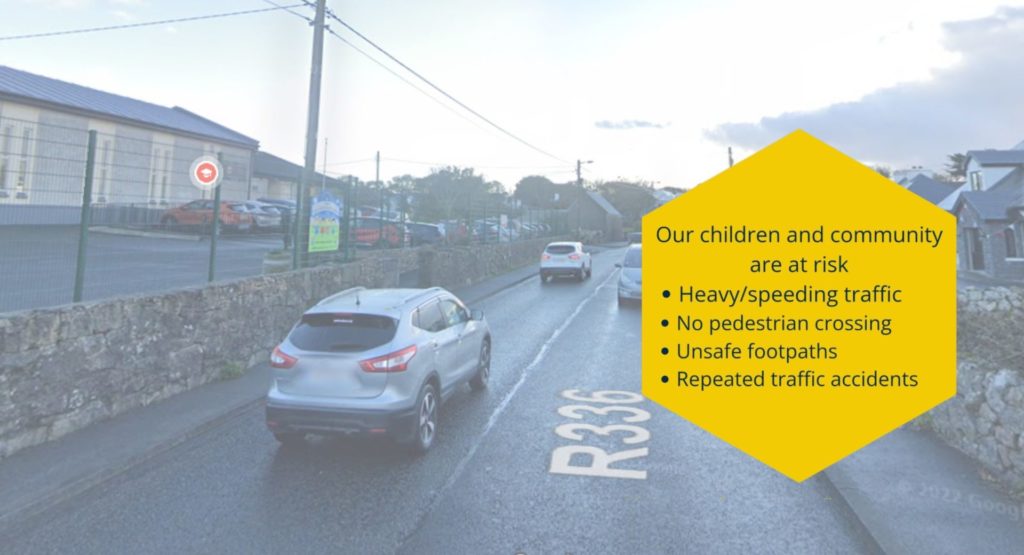
Walking protests in four areas of Connemara's R336 in next hour over 'lethal' road conditions
This article first appeared on Galway Bay FMWalking protests are to take place along four areas o...
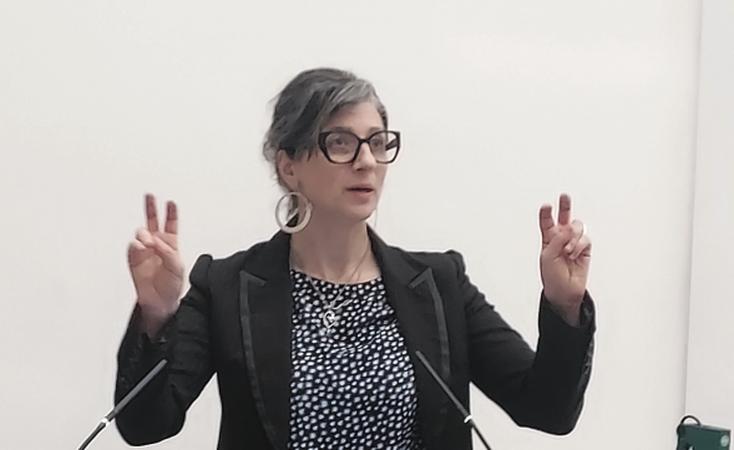
‘More than talk needed’ from Ireland on Gaza
By Ciaran Tierney The UN Special Rapporteur on the occupied Palestinian territories urged ordi...
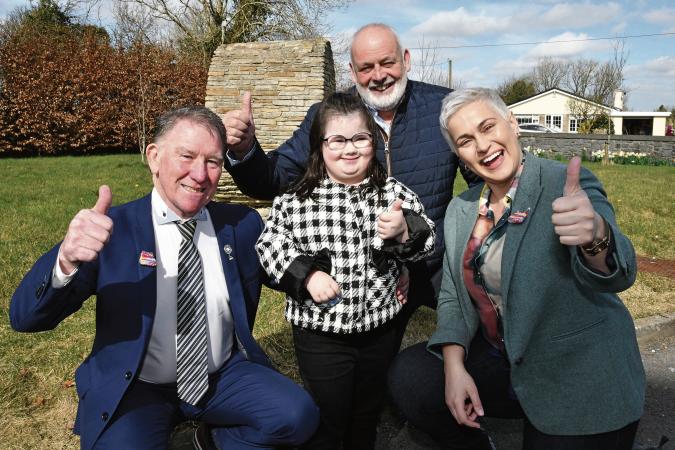
Political trio undertake day-long fact-finding mission to North Galway town
A political triumvirate of a Government TD, an MEP and a local councillor embarked on a tour of a...
Sign Up To get Weekly Sports UPDATES


